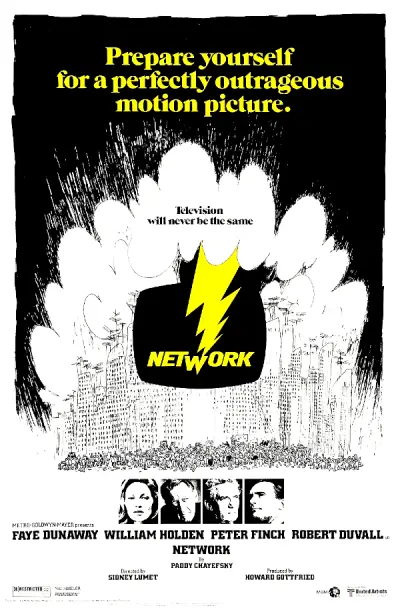
"Network," the 1976 cinematic masterpiece, stands as a profound critique of the television industry and its impact on societal values. The film unravels the complex tale of Howard Beale, the declining anchor of UBS Evening News, whose infamous on-air meltdown, declaring "I'm mad as hell, and I'm not going to take this anymore!", becomes a national sensation. This pivotal moment, however, is just the beginning of a narrative steeped in intricate themes and symbolism.
At the heart of the film is Diana Christensen, a relentless and ratings-driven programming executive. Her ethical compromises in pursuit of viewership lead to a complicated partnership and romance with Max Schumacher, an experienced news division executive. Schumacher, a disciple of the renowned Edward R. Murrow, witnesses the disintegration of his esteemed news division under Christensen's aggressive pursuit of ratings.
The film, directed by Sidney Lumet with a screenplay by Paddy Chayefsky, masterfully blends sharp satire with gripping drama. It presciently anticipates the rise of reality TV and media sensationalism. The narrative boldly criticizes the erosion of journalistic integrity, highlighting the blurring of lines between news and entertainment, and the overpowering influence of ratings in media decision-making.
A key theme in "Network" is the disregard of television executives for content quality as long as profits are not threatened. Beale's emotional outbursts and appeals for public action are initially embraced by the network, but only until they jeopardize the network's financial interests. This mirrors actual scenarios in media where economic gains often eclipse content value.
Beale's apparent madness is a poignant metaphor for societal discontent and showcases the media's propensity to exploit personal crises for entertainment. The film does not hold back in demonstrating how public intrigue in Beale's unraveling translates into skyrocketing ratings, underscoring a societal preference for drama over substance.
Moreover, "Network" delves into deeper themes of identity, morality, and the personal cost of unbridled ambition. Christensen's single-minded chase for success leads to her emotional hollowness, reflecting a critical view of the dehumanizing nature of corporate life. Similarly, Beale's transformation into a "mad prophet of the airwaves" symbolizes the media's power to manipulate and commodify individual identities.
In conclusion, "Network" offers a scathing condemnation of the television industry, presenting a vision that resonates with contemporary concerns about the blurring of entertainment and reality. Its exploration of media power dynamics, the manipulation of public sentiment, and the erosion of journalistic ethics remains as relevant today as it was in the 1970s.

